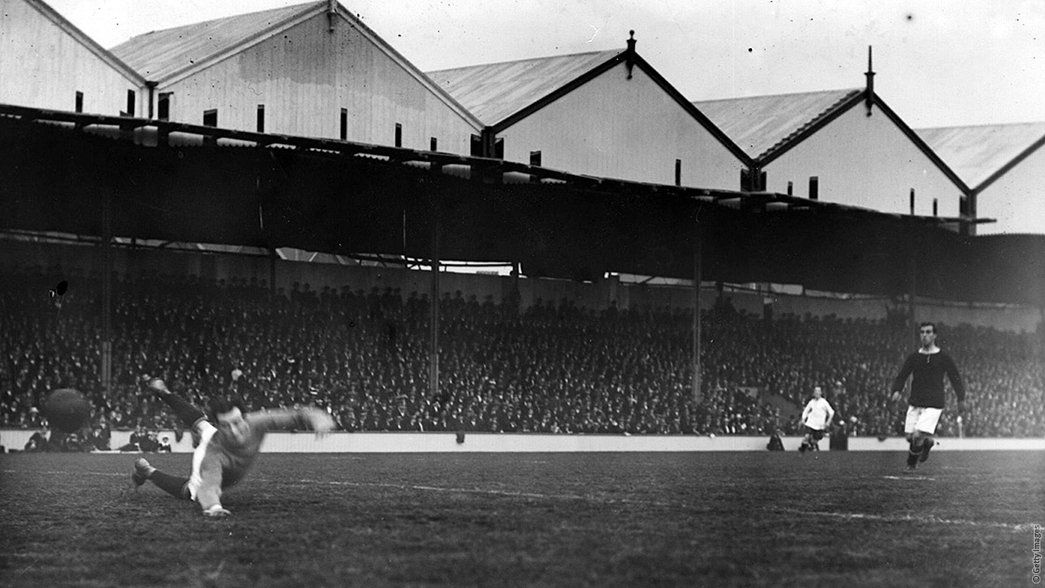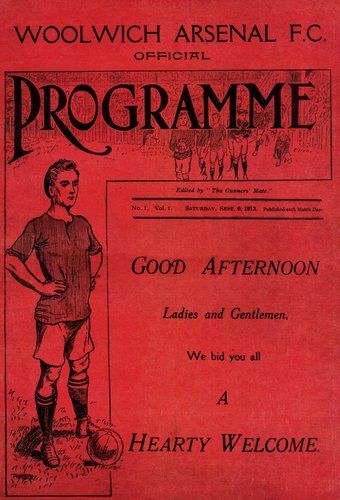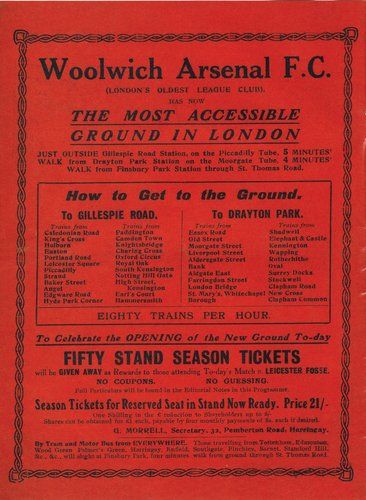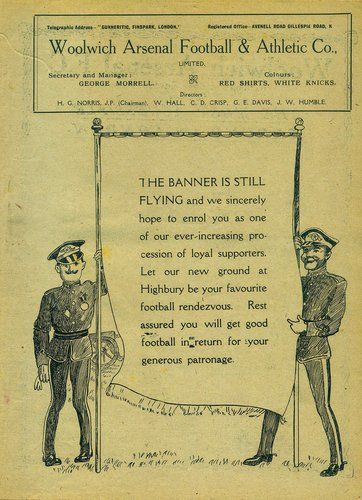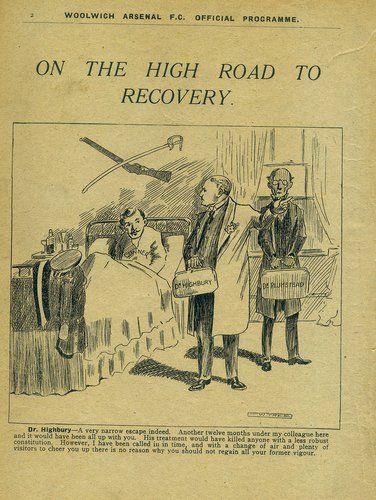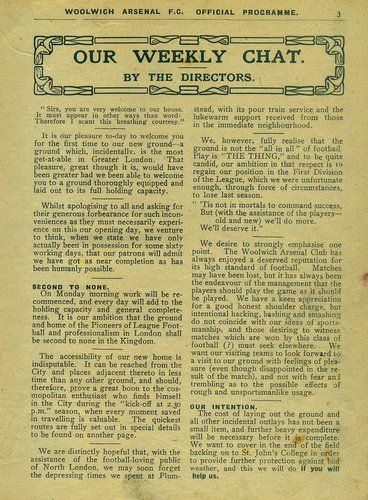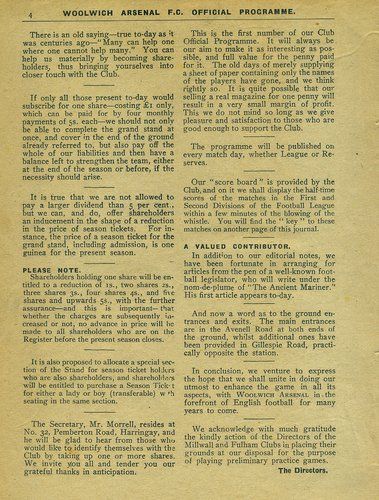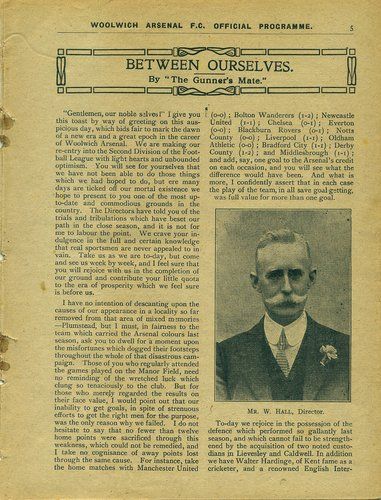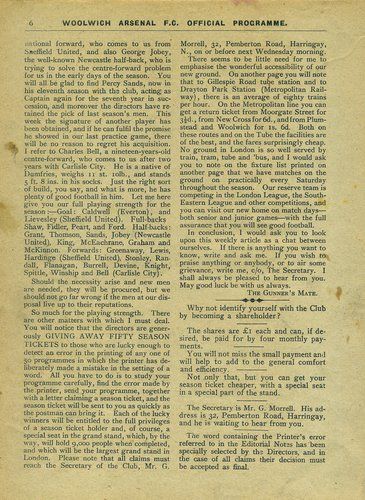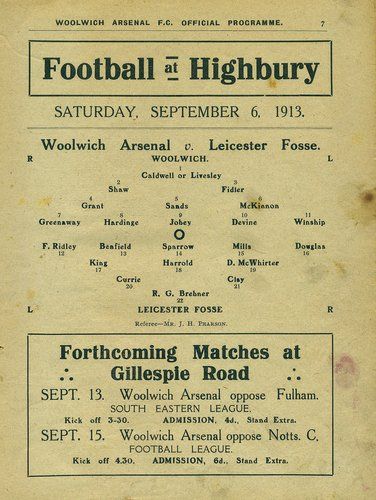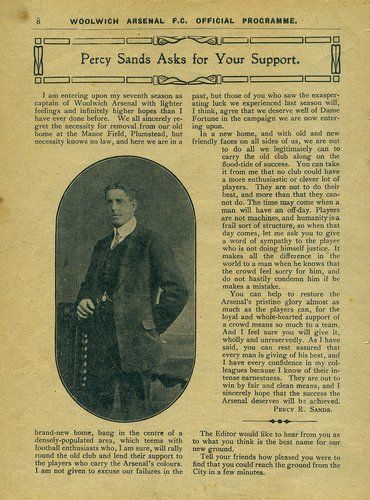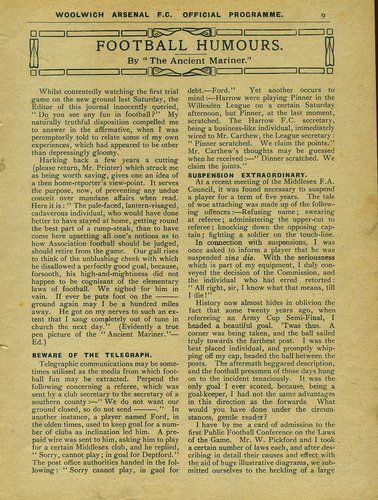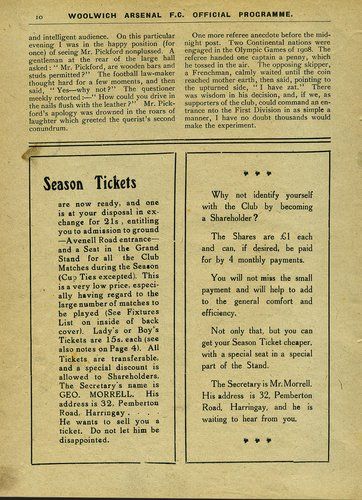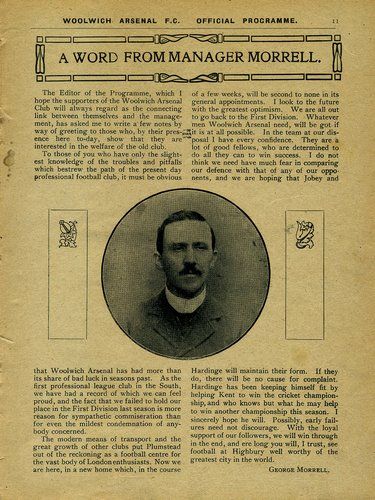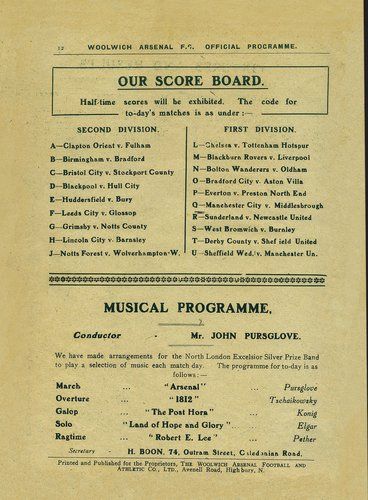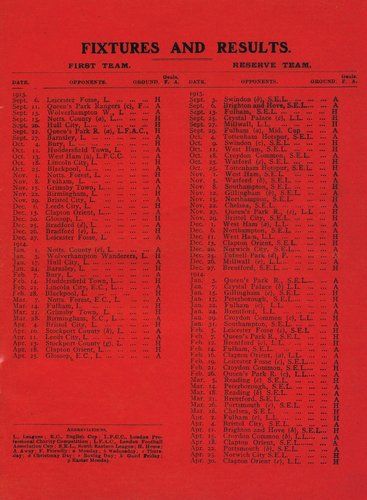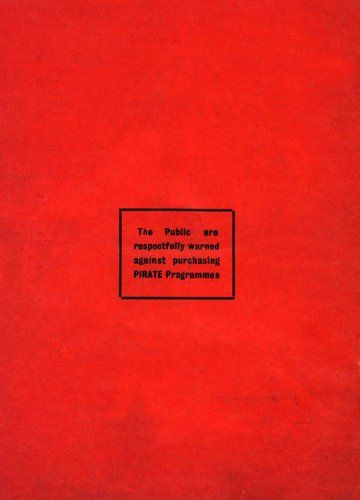Arsenal's move from Woolwich to Highbury was borne of ambition and necessity.
Without it, the Club may not even have survived, let alone become one of the most famous names in Europe.
By the end of the 1912/13 season, Arsenal's finances were in a parlous state. Henry Norris, who had recently taken charge, drew a stark conclusion: if Arsenal were to become a powerhouse in English football, they would have to move.
"By the end of the 1912/13 season, Arsenal's finances were in a parlous state. Henry Norris, who had recently taken charge, drew a stark conclusion: if Arsenal were to become a powerhouse in English football, they would have to move."
Norris and William Hall considered open spaces in Battersea and Harringay, but nothing met their requirements. Highbury, north of the River Thames, would mean close proximity to another club - Tottenham - something Norris wanted to avoid. But the nearby underground station would increase the Club's chances of attracting large crowds and made Highbury a compelling option.
After lengthy negotiations, Arsenal paid £20,000 for a 21-year lease. Objections to Arsenal's move north soon emerged. Tottenham and Clapton Orient, then playing at Homerton, were dismayed at Arsenal's close proximity, and local residents were unhappy too. But Arsenal were allowed to stay at their new home after the League Management Committee turned down an appeal by residents and nearby clubs.
The final game at the Club's old Manor Ground was a 1-1 draw against Middlesbrough on April 26, 1913. Soon after the move, Woolwich Arsenal become known as The Arsenal (although its official name was 'Arsenal') and Norris set about ploughing money into the Club's new home.
In four months the new pitch was levelled, a new grandstand was partly built and terracing and turnstiles were installed. By the time Arsenal played Leicester Fosse in their first game at Highbury on September 6, 1913, Norris had found an incredible £125,000 to invest in the Club.
Life began well with a 2-1 win against Leicester Fosse, Scottish international Andy Devine scoring Arsenal's first goal. Norris' next target was First Division football, and Arsenal's team seemed equipped to deliver it. But within a year of Arsenal's first game at Highbury, Europe was at war. Norris would have to wait.
Woolwich Arsenal 2-1 Leicester Fosse
Saturday, September 6, 1913. Division Two. Highbury.
Goals: Woolwich Arsenal: Jobey 45, Devine 78 (pen). Leicester Fosse: Benfield 20
Woolwich Arsenal: Lievesley, Shaw, Fidler, Grant, Sands, McKinnon, Greenaway, Hardinge, Jobey, Devine, Winship.
Leicester Fosse: R.G. Brebner, Clay, Currie, D.S. McWhirter, Harrold, Burton, Douglas, Mills, Sparrow, Benfield, Waterall.
Attendance: 20,000
Referee: J.H. Pearson
Next
Copyright 2024 The Arsenal Football Club Limited. Permission to use quotations from this article is granted subject to appropriate credit being given to www.arsenal.com as the source.




